Ngawa Tibetan and Qiang Autonomous Prefecture, also known as Aba, is a popular tourist destination in northwestern Sichuan. The prefecture is located at southeast edge of Qinghai-Tibet Plateau, adjacent to Gansu in north and Qinghai in northwest, Chengdu, Mianyang and Deyang in the east and southeast, borders Ya’an in the south and is connected with Garze in the west. Barkam (Maerkang) Town is the prefecture seat, about 400 KM from Chengdu. Covering an area of 84,242 square meters, Aba has an average high elevation of 3,000 m above, inbred lots of plateau and alpine canyons landscape and natural wonders.
Honored as one of the best ecotourism destinations in the world, Aba presents its surprisingly wild fascination away from bustling cities in 25 nature reserves, 10 forest parks, 5 wetland parks, including the best-known World Heritages - Jiuzhaigou and Huanlong National Park, Wolong Giant Panda Reserve, magnificent mountains (Mount Siguaniang, ...), glaciers, valleys, painting-like prairies grasslands, eyes-pleasing waterfalls and lakes and huge amounts of rare species of flora and fauna. Meanwhile, Ngawa is the second Tibetan area in Sichuan and the biggest agglomeration in China, automatically giving tourists perfect window to feel and know more local minority culture and history. Novel Tibetan and Qiang villages, Buddhist temples and lively festivals and folk customs are cultural highlights when discovering Ngawa.
Ngawa Prefecture is a treasure land of both natural wonders and distinctive minority culture. Different kinds of tourism resources are scatted in the 13 administrative districts in Ngawa. Travelers can admire the paradise Jiuzhaigou and magnificent water landscape of Huanglong in Songpan, marvel at splendid Mt. Siguniang in Xiaojin, amazing Dagu Glacier in Heishui, oceanic prairies in Ruo’ergai, explore Tibetan and Qiang ethnic culture and customs in Li County, etc. Check the top places to visit in Ngawa below!
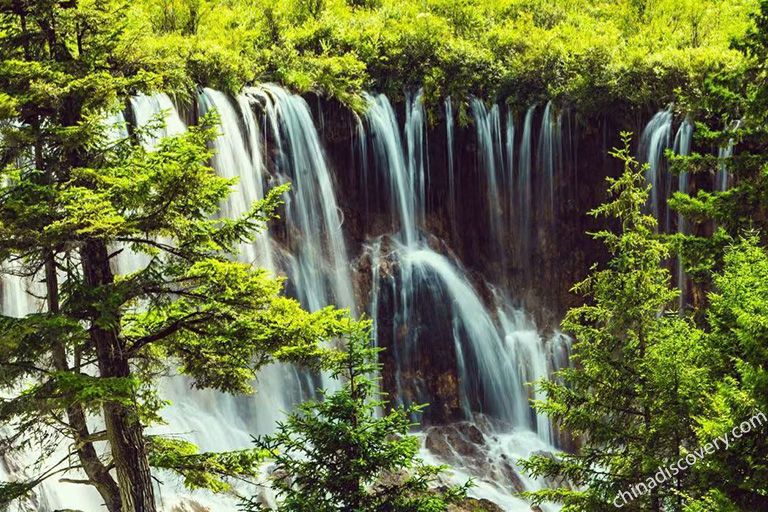
Altitude: 1,000m-4,500m
Top highlights: Jiuzhaigou National Park, Ganhaizi National Forest Park, Fairy Pool Scenic Area…
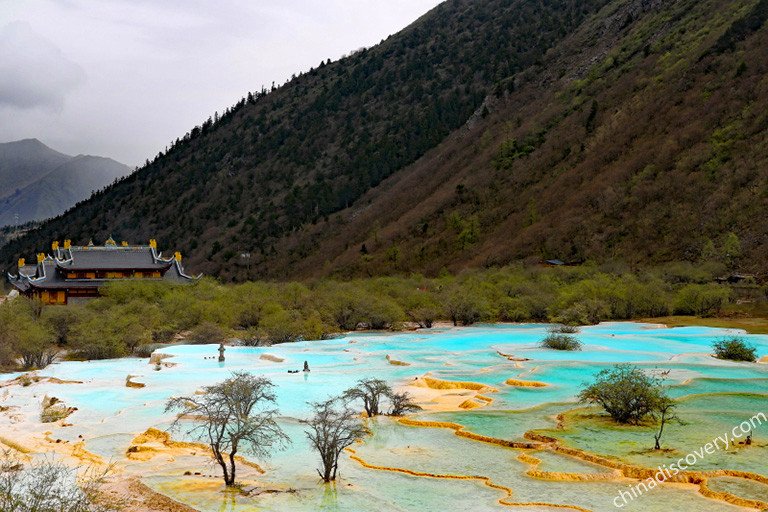
Songpan
Altitude: 1,080m-5,588m
Top highlights: Huanglong National Park, Mounigou Valley, Zhaga Waterfall, Erdaohai Lake, Chuanzhu Temple, Songpan Ancient City...
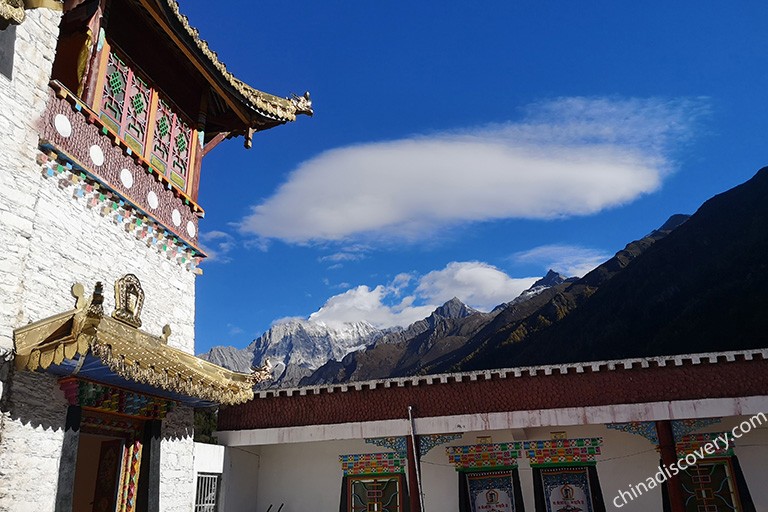
Xiaojin
Altitude: 3,000m-6,250m
Top highlights: Mount Siguniang, Jiajin Mountain, Balang Mountain...
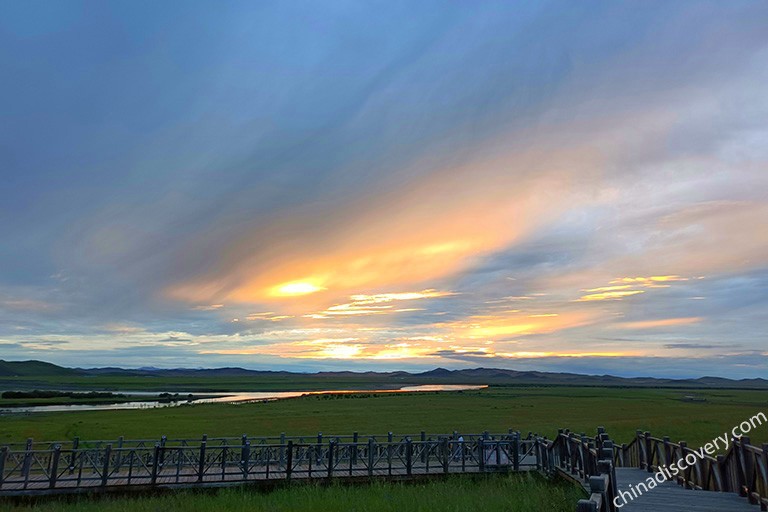
Hongyuan (Khyungchu)
Altitude: 3,210m-3,507m
Top highlights: Hongyuan Prairie, Moon Bay, Waqie Long March Ruins, Emu Tang Flower Sea, Waqie Pagoda Forest, Maiwa Temple...
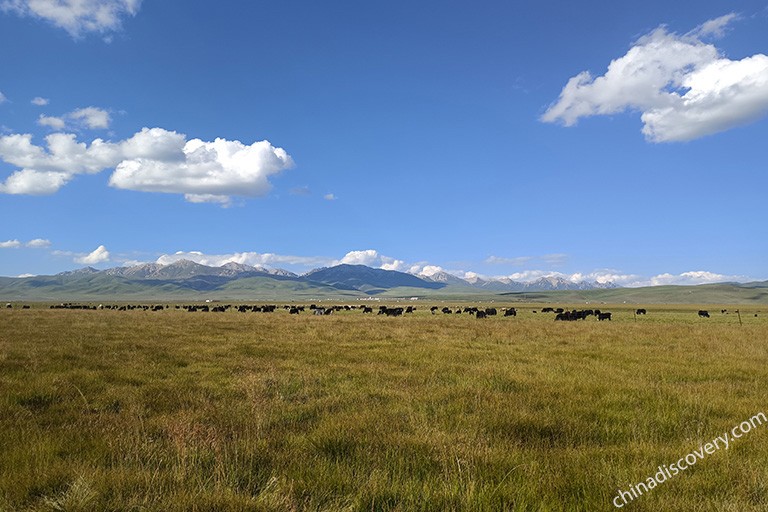
Altitude: 3,000m-4,000m
Top highlights: Ruoergai Wetland Reserve, Langmu Temple, Yellow River Jiuqu Diyiwan, Minshan Mountain, Tiebu Nature Reserve, Hua Lake, Namo Grand Canyon...
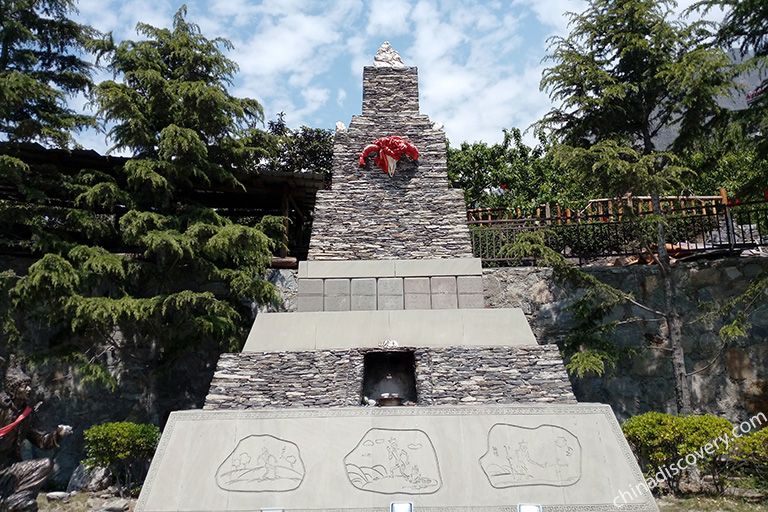
Maoxian
Altitude: 890m-5,230m
Top highlights: Qiangxiang Guzhai, Diexia Songpinggou Scenic Area, Qiang Nationality Museum, Taiziling Ski Resort, Jiuding Mountain...

Heishui
Altitude: 1,790m-5,286m
Top highlights: Dagu Glacier, Yakexia Park, Kalong Valley, Seergu Tibetan Village, San’ao Snow Mountain...
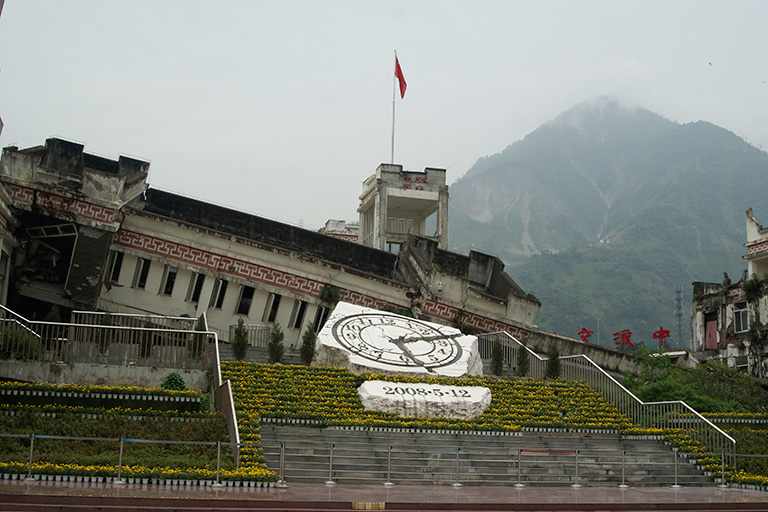
Wenchuan
Altitude: 1,300m (average)
Top highlights: Wolong Giant Panda Nature Reserve, Luobozhai Village, 2008 Earthquake Memorial Site, Sanjiang Ecologic Area, Shuimo Ancient Town...
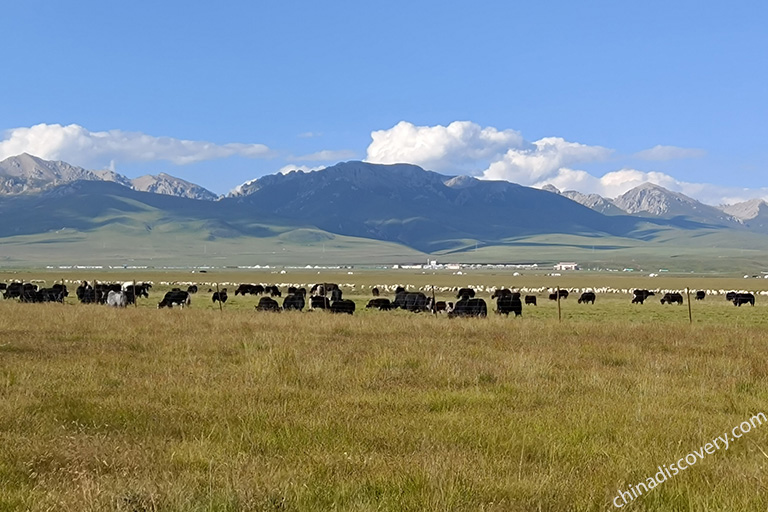
Aba
Altitude: 2,936m-5,154m
Top highlights: Nianbaoyuze Scenic Area, Stone Mountain, Manzatang Wetland Prairie, Rong’an-Ke River Grand Canyo...

Zamtang
Altitude: 3,285m (county seat)
Top highlights: Batuo Temple, Cuoerji Temple, RIsimanba Towers, Haizi Mountain, Xuantianxiuka Tibetan Village...

Barkam (Marerkang)
Altitude: 2,300m-5,000m
Top highlights: Dazang Temple, Zhuokeji Headman’s Village, Zhegu Mountain, Keshan Dwelling House...
Li County
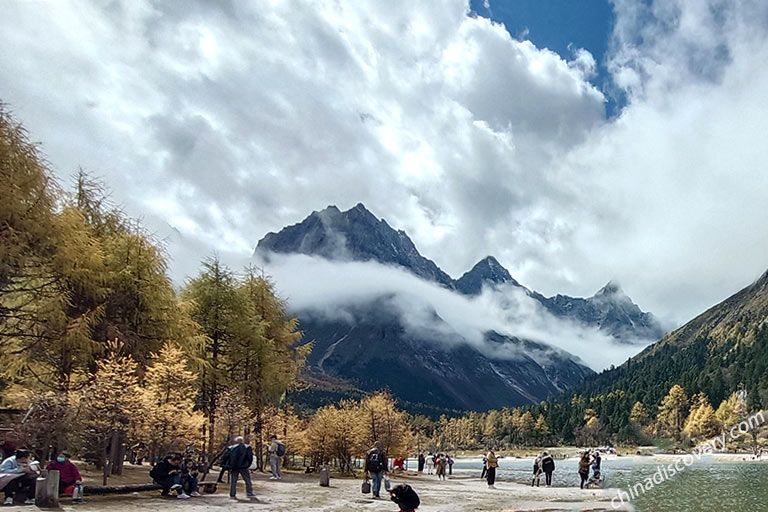
Li County
Altitude: 2,700m (average)
Top highlights: Bipenggou Valley, Taoping Qiang Village, Miyangluo, Ganbao Tibetan Stone Village, Gu’ergou Mountain Hot Spring...

Altitude: 2,015m-5,068m
Top highlights: Guanyin Bridge, Jinchuan Pear World, Suowu Mountain, Gada Mountain, Yunding Flower Sea...
Located in remote north region of Sichuan, Ngawa has unexpected heavyweight world-class legacy like Jiuzhaigou and Huanglong National Parks famous for incredible water sights, and various type of natural wonders such as snow-capped high mountains, grand canyons, original forests, precipitous alpine landform, picturesque prairies, imposing glaciers and rivers, and odd localized ethnic culture and customs, e.g the characteristic minority villages of Tibetan, Qiang people and so forth.

Named after the Night Tibetan Villages in the valley, Jiuzhaigou is a fairy tale park listed as a UNESCO World Natural Heritage and Biosphere Reserve, China’s first nature reserve...

A World Nature Heritage property nearby Jiuzhaigou, which is best famous for massive travertine lakes, waterfalls, forest and snow-capped mountain scenery...
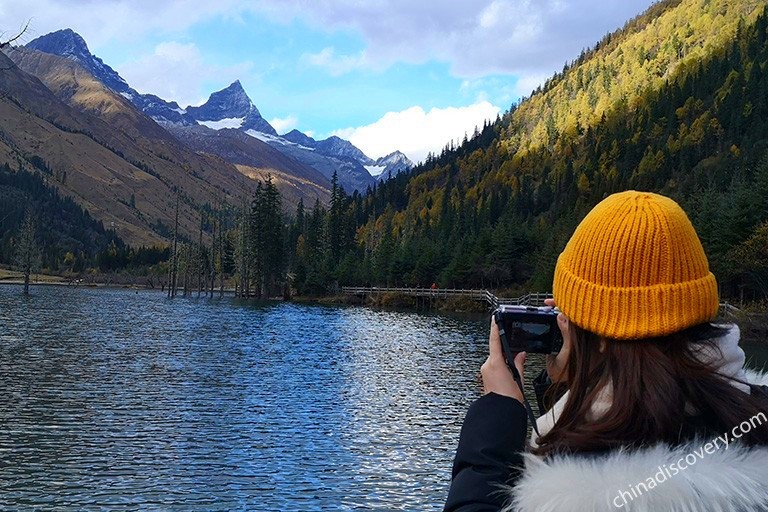
Reputed as “Oriental Alps” and Queen of Sichuan Mountains” , Siguniang Mountain has 52 snow mounatins, steep valleys, meadows and alpine lakes showing breathtaking beauty and charm.
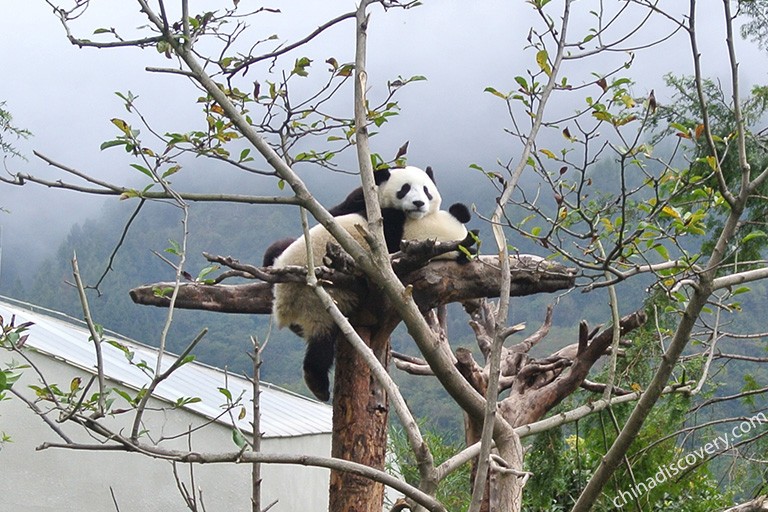
The biggest nature server with the largest number of rare animals (Giant Panda, Leopard...) and plants, the third national nature reserve in China.
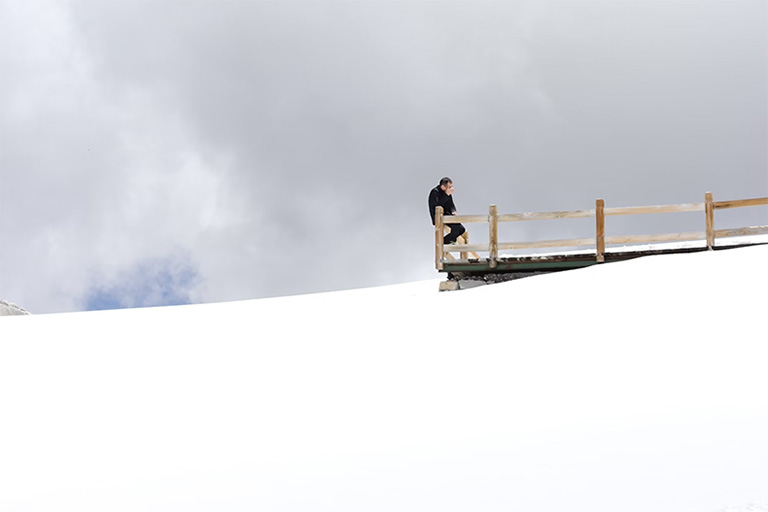
It is a spectacular heaven of ice and snow, a pure white pearl unfolding the biggest, youngest and lowest glaciers in the world.
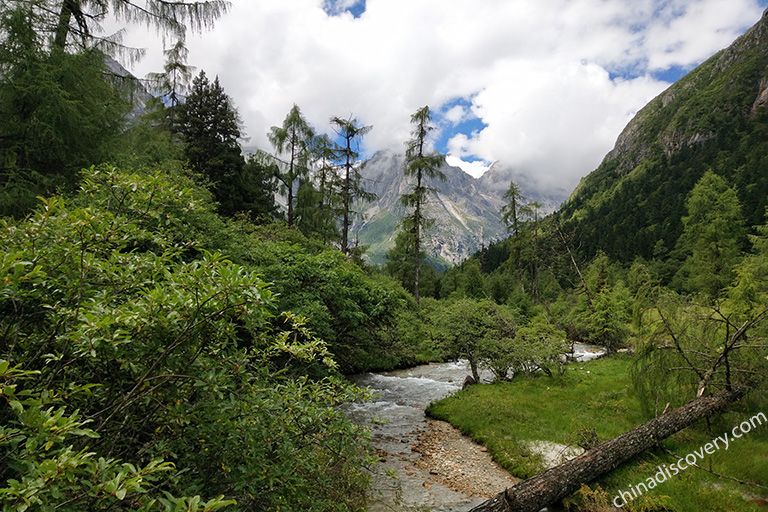
People call it a beautiful shadow of Mount Siguniang, a large ecotourism scenic area with stunning mountains, primitive forests, colorful vegetation and green lakes.
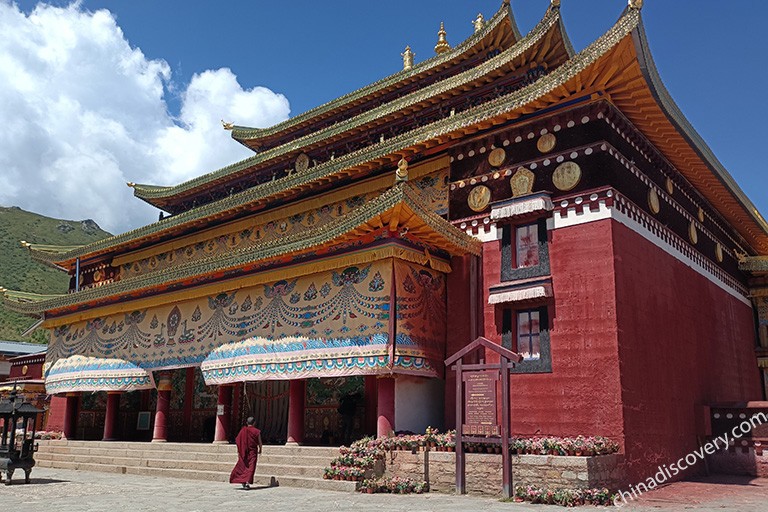
Located between Gansu and Sichuan, the temple is a quite and special monastery of Gelug sect of Tibetan Buddhism with over 1,000 years’ history.
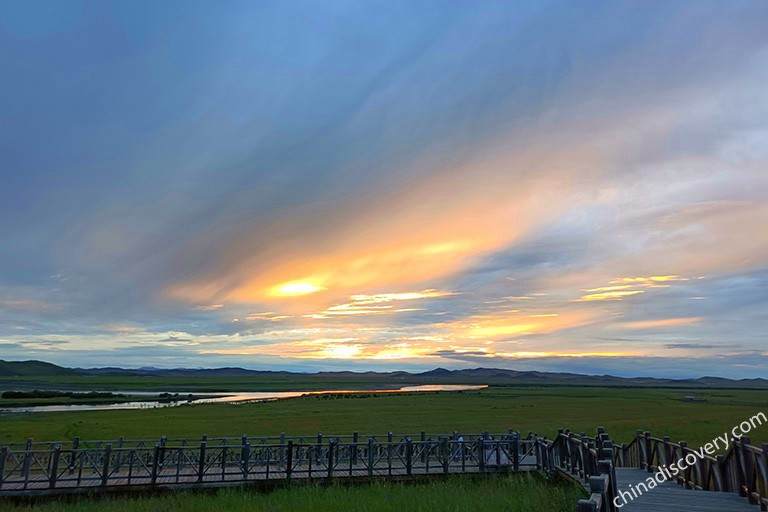
Along the 99 bends of Mother River of China, the fist bend upstream is a top highlight and magic wonder, when Yellow River forms a big “S” turn like a soft ribbon of fairy.

Autumn is the most beautiful season when continuous mountains covered by colorful leaves. In this China’s biggest red leaf scenic area, there are numerous brooky land formation, big hot spring, unbound forests,..

Holy religious culture, gorgeous alpine, meadows, lake, valleys, forest and unique Tibetan style houses and customs earn the land a title of “Second Lhasa”.
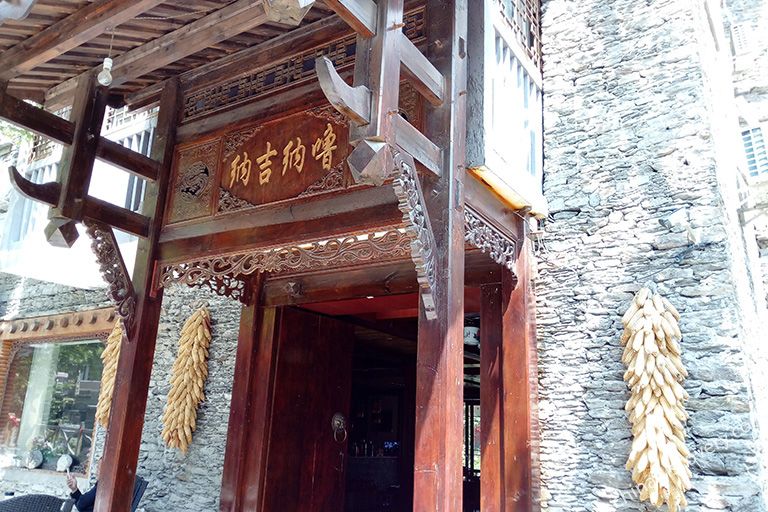
It is world’s most well-preserved integrated complex of watchtower and residence, a mysterious “Eastern Castle”, a “Natural Air Conditioner with perfect architecture art, design and aisles.
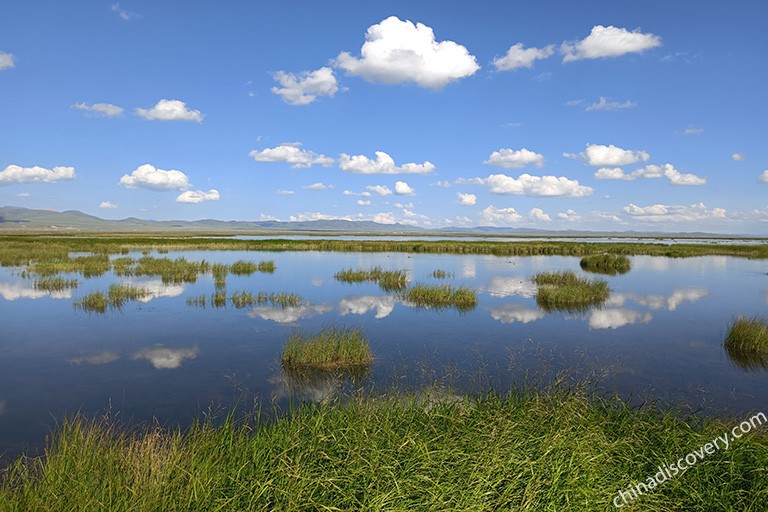
A Oasis on Northwestern Sichuan Plateau and one of the biggest grassland area in China. What a visual feast seeing the green vast grassland, flocks of sheep, Tibetan herds, distant snowly mountains..
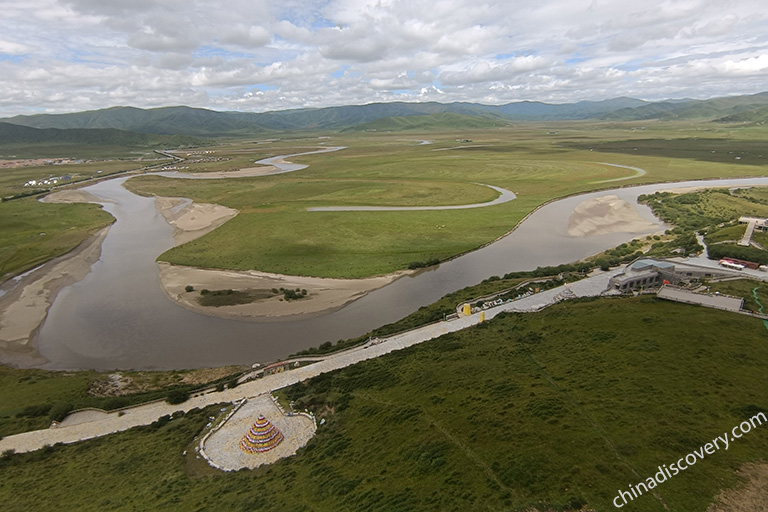
The broad grassland spreading on the dreamlike ground looks like a supple green carpet, and crystal water paints a beautiful crescent-shaped on it.
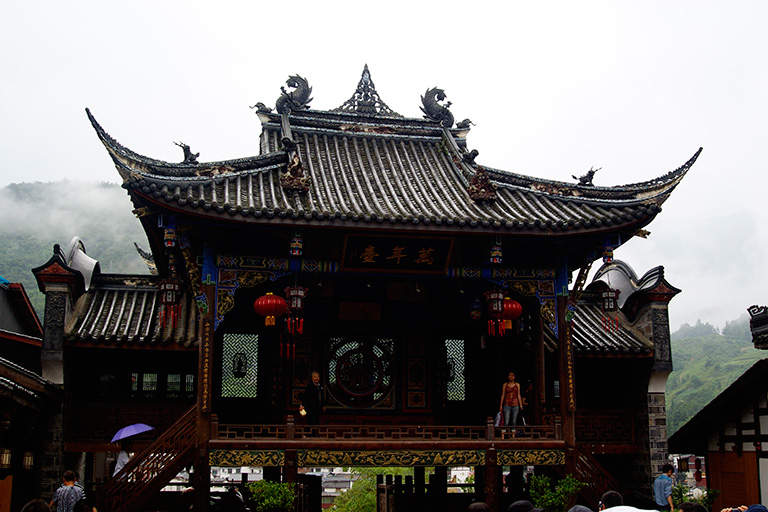
Lying nearby the branch of Min River, the ancient town was famous as longevity area since Shang Dynasty. Coexisting architecture and culture of Tibetan, Qiang and Han is the top feature.



The high-altitude location and the different topography creates diverse climate and weather in Ngawa, with a obvious character of vertical zonality and temperature decrease as the elevation rises from southeast to northwest regions. The average temperature is 9.3℃, yearly average rainfall is 704.9mm. In spring and winter, it’s cold and dry along with frequent strong winds, snows, summer is slightly cool and autumn is short and a bit chilly.
The hilly plateau in the northwestern Aba belongs to continental plateau climate, which owns an annul average temperature of 0.8℃~4.3℃, no clear temperature difference in four seasons, winter is very long and cold, summer is cold and humid. Central highland has sub-humid climate with distinct wet and dry season, summer is cool, winter and spring is cold, annual average temperature is 5.6℃~8.9℃, high mountains are wet and cold and valleys are dry and cold all year round.The climate in alpine and gorge region in the southwest Ngawa changes with the elevation, from subtropic to frigid zone, where river valleys under 2,500m above sea level has lots of rains;slopes between 2,500m-4,100m is cold temperature zone with yearly average temperature of 1℃~5℃; mountains over 4,100 m features in polar climate, snow covered full year without summer.
Best Places to Visit in Spring: Jinchuan, Mount Siguniang
Best Places to Visit in Summer: Jiuzhaigou, Ruo’ergai, Hongyuan
Best Places to Visit in Autumn: Jiuzhaigou, Huanglong, Mount Siguniang, Dagu Glacier, Bipenggou, Miyaluo
Best Places to Visit in Winter: Jiuzhaigou, Taiziling Ski Resort, Gu’ergou Mountain Hot Spring




Because the remote location in northwestern Sichuan, tourists usually get to Ngawa from Chengdu, Sichuan and travel around Ngawa by highways or drive to Ngawa from neighboring Gansu Province in the north.
By Flight: There are two airports serving tourists to Ngawa, Jiuzhai Huanglong Airport (JZH) and Hongyuan Airport (AHJ). At present, tourist can take non-stop flight from Beijing (3 hours), Chengdu (1 hour) to get to Jiuzhai Huanglong Airport daily, or take Chengdu to Hongyuan flight (1 hour), Lhasa to Hongyuan flight (about 2 hours) and then transfer to scenic spots and county for accommodation. New reported that, Jiuzhai Huanglong Airport will be upgraded to international airport by the end of 2020, opening international (regional) airlines without domestic transfer.
By Train: So far, there is no rail connecting Ngawa with other places in China. However, 3 important rails (Chengdu-Lanzhou Railway, Xining-Chengdu Railway, Chengdu-Golmud Railway) and the Dujiangyan-Mount Siguniang Mountain Rail Transit under construction will conveniently connect Jiuzhaigou and other places of Ngawa with Chengdu, Gansu and Qinghai.
By Road (Highway): Taking a long-distance bus and private driving is the most scenic and common way to reach Ngawa. Tourists often drive from Chengdu to Jiuzhaigou, Huanglong (8-10 hours) via Dujiangyan-Wenchuan Highway and G317 & G213 National Highway, or travel from Lanzhou, Gansu via the G213 to Ruo’ergai, Songpan, Mao County and Wenchuan. Jiuzhaigou-Mianyang Highway and more roads are being built to better facilitate Ngawa transportation.
Ngawa has total 13,213 km highway and nearly 200 bus stations linking major counties, towns and local villages. Public transportation is relatively complicated and time-consuming for foreign travelers, therefore, the best option to travel around Ngawa is booking private tour from China Discovery, enjoy worry-free and safe transfer service to Jiuzhaigou, Huanglong, Mount Siguniang and other scenic spots in Ngawa.

Compared to Chengdu and other Chinese metropolises, the accommodation condition and choice in Ngawa is generally not so many, due to isolated location and economic factors. But, tourists can still find some star-rated hotels, including luxury chain hotels, local star hotels and guest houses near Jiuzhaigou National Park and Huanglong. In other places of Ngawa, central towns have better and more mid-ranged hotels and featured guesthouses close to main tourist attractions. Travel with China Discovery, we will try our best to offer you clean and comfortable hotels to suit your travel itinerary, budget and requirements and guarantee you rest well during the journey.
To help you better know the location of Ngawa and the top tourist destinations and attractions to plan a Jiuzhaigou tour and extended trip to Huanglong, Mount Siguniang, Wenchuan..., we collected the most useful maps, covering the location maps, transportation maps and scenic spot travel maps below for you. All of them are updated, free to download! More about Jiuzhaigou Travel Maps 2023 | Huanglong Travel Maps2023.
● Altitude Sickness: 1.Chengdu has an average elevation of about 6,00 only, while most scenic spots in Ngawa are located at high-altitude plateau area with height between 2,000m-3,000m, some even higher than 5,000-6,000m above sea level. To avoid uncomfortable symptoms of altitude sickness in Jiuzhaigou, Huanglong and other attractions, tourists need to follow helpful guide before and during the tour, including getting a check-up and advice from doctor, avoid drink alcohol, strenuous exercise, keep warm and the like. Jiuzhaigou and Huanglong Altitude & Useful Tips>> 15205
● Packing Ideas: 2.Traveling on plateau and alpine, mountains in Ngawa, special items need to be prepared properly, especially for a hiking and sightseeing trip. Articles should be packed includes valid passport, camera, comfortable shoes, several outfits for changing, sunglasses, sunblock, lip balm, water and food, pills or oxygen tanks against altitude sickness, some cash and etc..
Besides the wild nature and special ethnic culture exploration in Ngawa, Sichuan has many other great destinations well worth your discovery, including the well-known "Hometown of Giant Panda" - Chengdu, UNESCO Natural & Cultural Herigates - Leshan Giant Buddha and Mount Emei, Dujiangyan with brilliant ancient wisdom project and Panda Volunteer experience, Sanxingdui Museum with mysterious ancient Shu Kingdom culture and history... It's highly suggested to travel Ngawa with Sichuan to fully see, feel and taste and memorize the best local charms!
The vast China holds abundant destinations of culture, history, nature, ethnic customs, etc. Why not discover more scenic destinations in China, such as Beijing, Shanghai, Xian, Lhasa, etc. to satisfy your eyes and mind to the most. Check the detailed travel guide of each destination and start your exploration!
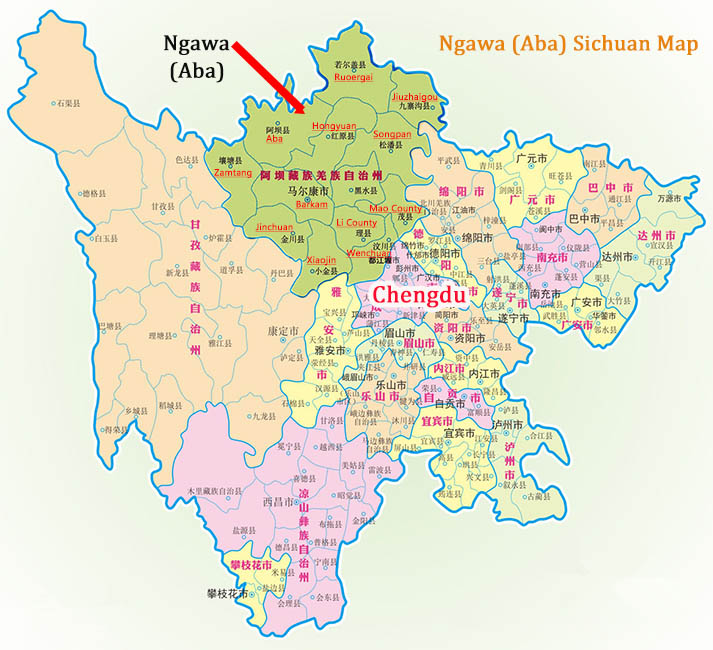
Chinese Name: 阿坝
Chinese Pinyin: ā bà
English IPA: /ɑ:'ba/
Capital: Barkam
Population: 0.94 million
Ethnic Minorities: Tibetan, Qiang, Hui, etc.
Language: Tibetan, Chiang, Mandarin & Other Ethnic Languages
Climate: Continental Plateau Monsoon Climate, etc.
Area: 84,242 Square Kilometers
5A Parks & Nature Reserves (3): Jiuzhaigou, Huanglong, Wolong...
4A Attractions (22): Mount Siguniang, Dagu Glacier, Bipenggou, Taoping Qiang Village, Moon Bay, Ruoergai Yellow River Jiuqu Diyiwan...
Natural Ecotourism Areas:N Miyaluo, Mounigou, Kalonggou, etc.
Highest Point: Mount Siguniang (6,250m)
Time Zone: (UTC+8)
Among all destinations in Ngawa, a Jiuzhaigou tour is on the top of travel list and mostly departing from Chengdu. 1 to 2 days are needed to watch essence water landscape in Jiuzhaigou National Park. One more day is required for extensive trip to Huanglong nearby. If drive from Chengdu to Jiuzhaigou via Dujiangyan and Songpan, 5 days is suitable, with 2 days to visit Irrigation System and Mount Qingcheng in Dujiangyan and 1 day for Taoping Qiang Village in Li County en route. Drive about 4 hours from Jiuzhaigou, you can get to Ruoergai County, spend 2 to 3 days to discover beautiful grassland in Ruoergai and Hongyuan. Hikers can leave 3 to 4 days for a classic Mount Siguniang tour via Dujiangyan. If you love the wild nature and cultural difference in Ngawa, China Discovery also can customize further trips to Jinchuan, Xiaojin, Zamtang, Li County and other destinations when you have more time.
Before going to Ngawa, we highly recommend you spend 1 to 3 days travel Chengdu, Leshan Giant Buddha and Mount Emei with a Giant Panda experience, go to more great destinations around for an in-depth Sichuan discovery if time permits.
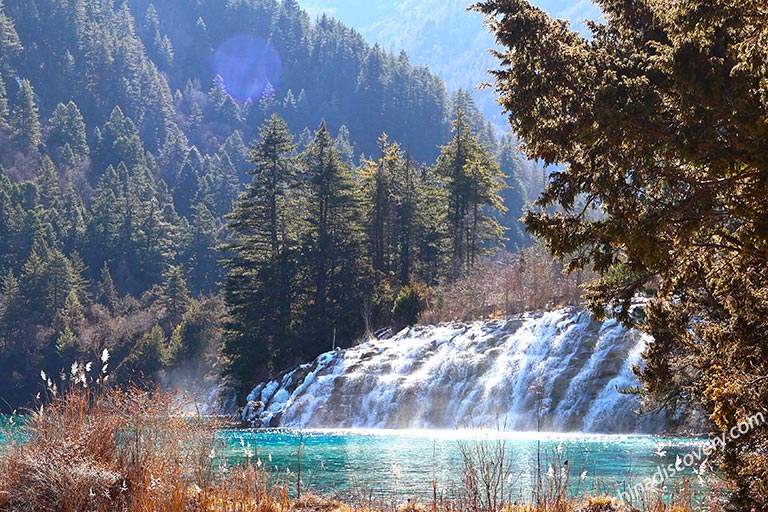
Chengdu / Huanglong / Jiuzhaigou
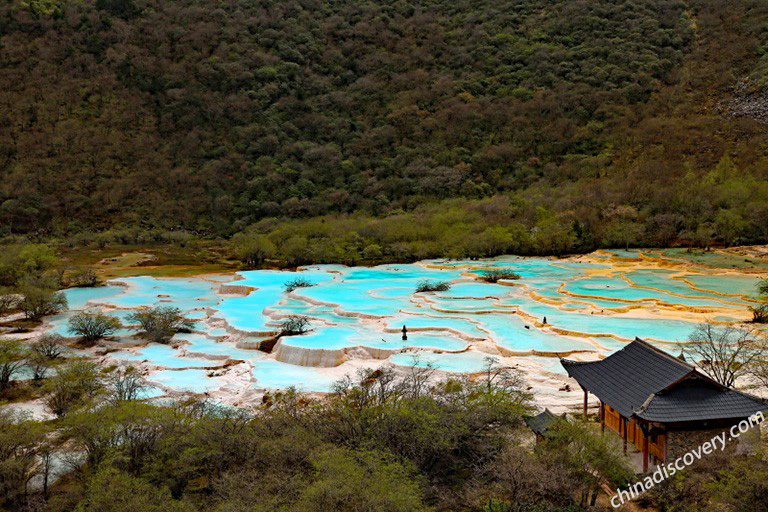
Chengdu / Huanglong / Jiuzhaigou / Chengdu
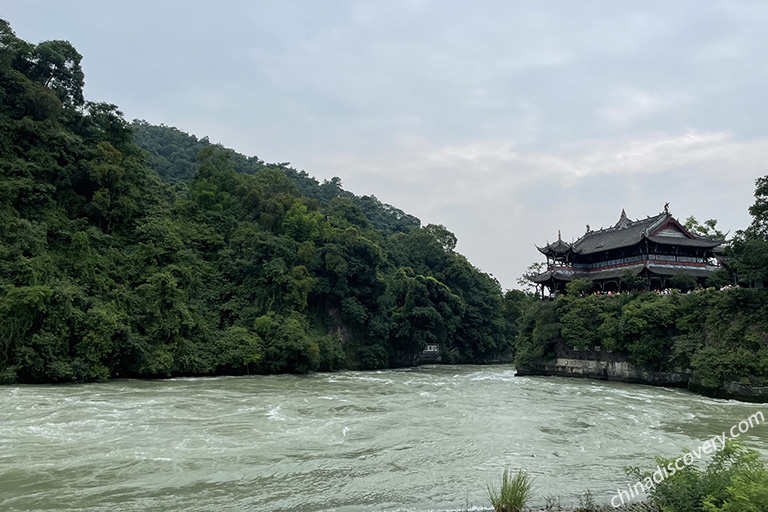
Chengdu / Chuanzhusi / Huanglong / Jiuzhaigou / Dujiangyan / Chengdu
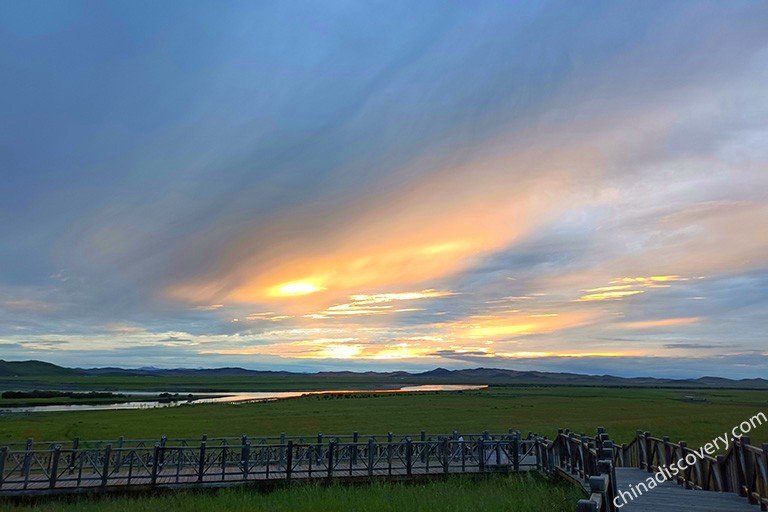
Chengdu / Chuanzhusi / Huanglong / Jiuzhaigou / Ruoergai / Langmusi / Hongyuan / Chengdu